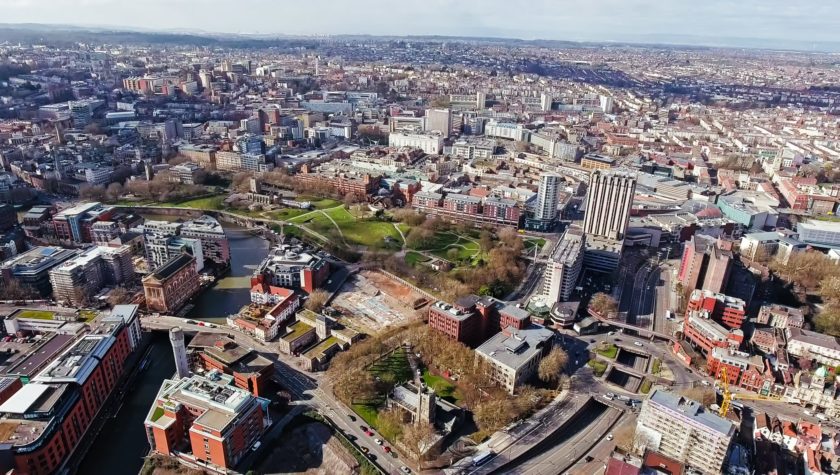Major new investment in public transport networks is needed for our cities to thrive. This is one of the top priorities for the UK’s first ever National Infrastructure Assessment.
Cities are critically important for the UK’s economy and society. 60% of jobs and 74% of service exports come from cities, while urban centres are also hubs for people to gather and enjoy shopping or sport and music events. The popularity of cities has seen populations grow by more than 10% since 2005 in central Manchester, Birmingham and Bristol.
As a result of their success, cities suffer the most congested and crowded infrastructure in the country. Urban roads suffer delays of 76 seconds for every mile driven compared to only 21 seconds elsewhere, while thousands of city rail commuters have to stand every morning. Failure to support new housing in the most popular cities has seen house prices in Bristol and Manchester rise more than twice as fast as in their surrounding area.
Cities are growing now even despite these infrastructure constraints, but this can’t continue in the future if nothing is done to address them. That would leave thousands of people unable to live where they want, or to work where they will contribute most to the economy.
The reason for this infrastructure strain is not difficult to diagnose. Congestion in cities shows that nearly all the available roadspace is being used by cars. This is largely because more than two thirds of people in most cities outside London go to work by car. The only way to allow more people to get around and to unlock more land for housing is to develop modern, attractive public transport networks that people want to use instead of driving.
In the past, local leaders beyond London haven’t had the powers they need to co-ordinate transport networks properly. Now many cities have new elected mayors with crucial devolved powers, for example to plan bus networks better. These mayors are already developing exciting new transport strategies, such as the plans announced by Andy Burnham last December.
Even more importantly, there has been a lack of consistent investment. Intercity roads and railways benefit from multi-billion pound investment programmes planned years in advance, but there is no equivalent for transport within cities. City leaders have had to shop around a list of smaller funding pots, stopping them from planning long-term strategies to transform their networks.
What cities need, then, is a properly designed, stable funding framework giving them certainty to plan for the future. We need to look at the scope for significant funding increases for city centre transport networks, especially once work on major intercity projects like HS2 and Northern Powerhouse Rail has been completed.
And there is more that can be done now, even before any increase in investment. Better designed public transport can use available street space more effectively, for instance by dedicating routes to fast, frequent, tram-style buses with priority over other traffic. The Metrobus network in Bristol, due to open this year, is a great example of what can be done – reducing travel times for many journeys by a quarter.
Between now and the summer the Commission will be considering the evidence we have received through our consultation, and speaking to people in different cities to find out more about what they need.
This will help us to make powerful recommendations to government on what more it should do to help cities transform their public transport networks.
Greg McClymont leads the National Infrastructure Commission’s work on transport and cities.
Read more about our work on the National Infrastructure Assessment.




